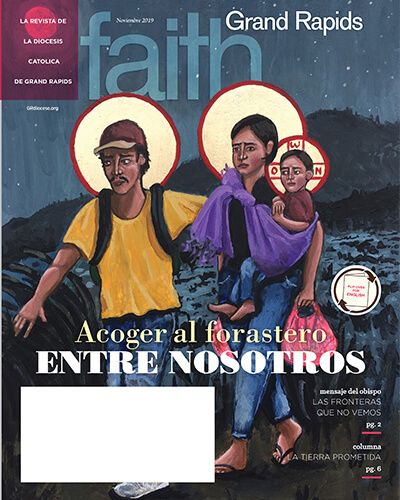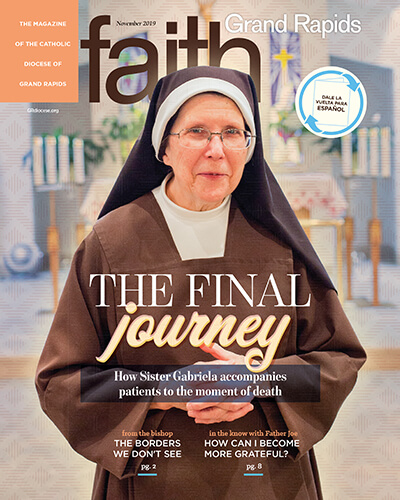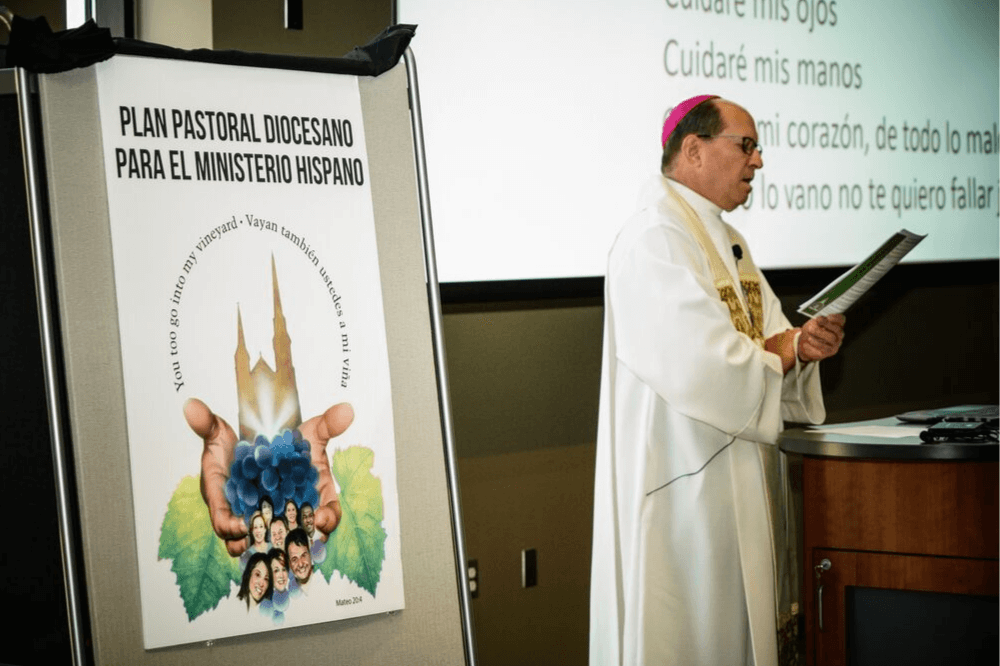
By Zulema Moret
From its foundation to this day, the United States has been a country that has received immigrants from all over the world who have found in it opportunity and refuge, bringing their energy, hope and cultural diversity. However, it is worrying that many people trying to migrate today are suffering, in some cases, dying, and human rights are being violated following discriminatory attitudes.
As witnesses to a devastated community, the Catholic Bishops of the United States and Mexico have spoken out on the controversial theme of migration in the Pastoral Charter “Together on the Path of Hope We are no longer Foreigners” (2007), a document in which they are clearly pronouncing the phenomenon of migration, as a historical phenomenon, present in both the Old and New Testament, and currently in our day.
To write the Pastoral Charter, Bishops have held meetings with migrants, officials, promoters of social justice for two years and have analyzed the interests of all parties involved in the phenomenon of migration in the light of the Social Doctrine of the Church, they invite every Catholic and every person of faith to use their resources and gifts to welcome the stranger among us (Mt 25:35). Five elements arise from the Social Doctrine of the Church that guide it in regard to the vision that should be adopted on immigration issues: 1) People have the right to find opportunities in their homeland, 2) People have the right to emigrate to support themselves and their families, 3) Sovereign States have the right to control their borders, 4 ) Those seeking refuge and asylum should be protected and 5) The dignity and human rights of undocumented migrants must be respected. It is also necessary to speak on the side of those migrants who are forced to leave their lands in order to support their family or who escape persecution.
IT WAS A ROLLER COASTER TO DECIDE EVERY MOMENT
Some parishioners who have suffered the painful experience of being separated from their parents, share the effects of these ruptures in the nuclear family and have shared some memories of what they have experienced, and how these events have transformed their lives.
A young Guatemalan woman, whose parents were deported six years ago, shares: “Before, the whole family was united, my brothers lived with my parents. My mom reunited us. It was very sad, we prayed for them when they were in jail. My mom was sick, and we didn’t want it to affect her more. It affected us all a lot, I was pregnant, and my mom always had been with me when the children were born … We already knew the situation was irreversible, still it’s hard to accept, but they they’re making a hard effort to move forward. There’s a difference, when there is the opportunity the siblings meet, because the love between siblings holds us together and that is what they taught us.”
This testimony allows us to recognize how important it is to maintain family unity, when one of these events happen within a family. Love between its members and faith are some of the survival strategies that allow move forward.
Two sisters of Mexican origin, whose father was deported a few years ago and whose mother returned to Mexico to meet him, tell us his account of when the event occurred. They were 18 and 16 at the time. The eldest of the sisters remembers:
“We had to mature sooner because Dad was the one who worked and supported us. We moved into the basement of an uncle’s house until we were able to be stable again. We had to work harder… The fear of thinking that could happen to my mom and us was huge. We all planned to go back to Guadalajara together to meet my dad, but we received the Dream Act news and we stayed. Mom then stayed with us for two more years.”
The younger sister explains her experience as a young girl who begins to grow and suddenly understands what’s happening: “It was a roller coaster, we had to decide every moment. Youth plans are over. If we got married, Dad couldn’t walk us down the aisle. We work hard to support ourselves. She adds: “I can’t say it has already happened because it’s still happening. We’re not together yet. You have to heal emotions.”
The role of the Church was important to these families because of the support they received, they felt a union and accompaniment when they learned of what had happened, both from the priest and members of the community.
CHILDREN SEPARATED FROM THEIR PARENTS, GRANDPARENTS, AUNTS AND UNCLES
Today, many families have been divided, and children have been separated from their parents and other relatives. That’s why they’re afraid to go to school or open the door of their house, living with the threat that they may take their parents or relatives. When the husband is separated from the family group, the woman suddenly finds herself without the provision of resources to support their children and cannot return to their country of origin.
We know of the psychological traumas and injuries that these experiences produce in the lives of children and others family members and as Catholics, we consider the family as the center the foundation of society, of a healthy and fruitful society, we are aware of the serious consequences that such actions cause in our community, and have an impact on society at large.
This example is enough to support that, between July 2018 and February 2019 U.S. border officials separated at least 200 children from their parents, without pointing out a clear reason for justifying the separation. (Human Rights Watch).
According to pediatricians’ reports this type of stress caused by these experiences traumatic conditions can cause deep stress, depression, extreme anxiety, hypertension and heart disease, and can have lifelong consequences.
PRAY AND ACT… A PATH TOWARD SOLIDARITY IN FRONT OF THE CRISIS
As Catholics we need to be aware of the serious events that occur every day in relation to our migrant brothers and sisters and their families, developing the spirit of solidarity and accompaniment on occasions that we know personally those who are suffering these losses and separations.
To see Jesus in each of them, to recognize that migrant Jesus in the desert, will open our hearts in order to provide the material and spiritual help required in the face of such a serious situation.
This is the English translation of an article in Spanish which originally appeared in the November 2019 issue of FAITH Grand Rapids magazine.
About the cover artwork: “La Sagrada Familia” ilustración de portada por Kelly Latimore.



